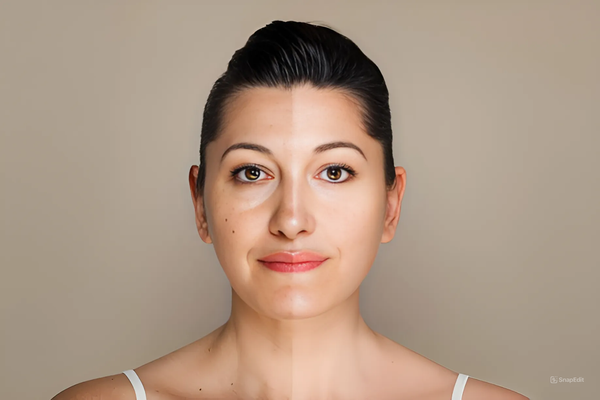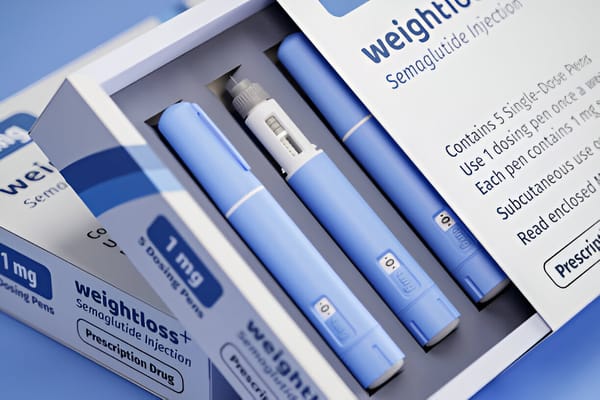China’s Groundbreaking Diabetes Cure: A New Era in Treatment?
A detailed exploration of recent advancements in stem cell therapies by Chinese scientists that offer potential cures for Type 1 and Type 2 diabetes.

Recent advancements in diabetes treatment by Chinese researchers are gaining international attention, particularly for their use of innovative stem cell therapies that hold promise for both Type 1 and Type 2 diabetes. These developments represent significant strides in addressing one of the world’s most prevalent chronic diseases, while also raising crucial questions regarding their widespread applicability, associated risks, and long-term effectiveness.
Key Breakthroughs
Type 1 Diabetes: Stem Cell Therapy to Reverse Insulin Dependence
A landmark case involving a 25-year-old woman with Type 1 diabetes offers new hope. In a pioneering procedure, scientists transplanted islet cells derived from her stem cells into her pancreas. After being insulin-dependent for over a decade, she regained the ability to autonomously regulate her blood sugar and has remained free from insulin injections for more than a year. This approach, utilizing chemically induced pluripotent stem cells (CiPSCs), may represent a potential clinical cure, particularly for patients experiencing severe complications related to insulin dependence.

Type 2 Diabetes: Reversing Insulin Dependence Through Cell Therapy
In another significant development, researchers in Shanghai successfully treated a 59-year-old man with a 25-year history of Type 2 diabetes. By converting stem cells obtained from the patient’s blood into pancreatic islet cells, the team achieved remarkable results. Within 11 weeks of the transplant, the patient no longer needed insulin injections, and within a year, he was able to discontinue oral medications entirely. This marks a historic first for stem-cell-derived islet transplantation in Type 2 diabetes, offering hope to millions living with this condition.

Potential Risks and Challenges
While these breakthroughs are exciting, they bring with them significant risks and challenges:
- Long-Term Efficacy: A primary concern is the durability of these treatments. Despite the patients’ initial success, experts emphasize the necessity of long-term studies to ascertain the stability of these results. Diabetes is a chronic condition, and questions remain about the potential for a lifelong cure.
- Immune System Complications: In Type 1 diabetes, the immune system often targets the insulin-producing cells in the pancreas. While stem cell therapy aims to replace these cells, patients may still need immunosuppressive drugs to prevent rejection or auto-immune reactions, leading to other health issues. Long-term use of these medications can increase vulnerability to infections and may result in serious side effects.
- Ethical and Technical Barriers: The complexity of stem cell procedures raises ethical concerns, particularly regarding the use of stem cells and the creation of pluripotent cells capable of developing into various tissues. Additionally, scaling such therapies necessitates specialized facilities and expertise, which may not be widely available.
Widespread Use and Limitations
Despite the promising outcomes, several limitations must be considered:
- Cost and Accessibility: The specialized nature of these procedures renders them expensive. Creating personalized stem cell treatments involves advanced technology and skilled professionals, making it challenging to offer these treatments to the broader population, particularly in lower-income regions with inadequate healthcare infrastructure.
- Donor Shortages: Traditional islet cell transplants depend on donor organs, and shortages limit the applicability of these therapies. While using a patient’s own stem cells alleviates some of this issue, the process remains complex and resource-intensive.
- Regulatory and Research Hurdles: Stem cell therapies face rigorous scrutiny from global regulatory bodies. The U.S. Food and Drug Administration (FDA) has recently approved similar treatments for clinical trials, but extensive research and clinical trials are needed to meet safety and efficacy standards before these therapies can be widely implemented.
Ongoing Research to Cure Diabetes: Expanding the Horizon
While the breakthroughs in China have garnered significant attention, the search for a diabetes cure extends globally. Research teams are actively investigating various innovative methods to replace insulin dependence and restore pancreatic function in individuals with both Type 1 and Type 2 diabetes.
- Beta Cell Replacement Therapy
Efforts to replace damaged insulin-producing beta cells are gaining momentum, with substantial investments in stem cell research. Vertex Pharmaceuticals is leading trials for their stem-cell-derived islet cells, which have shown early promise in helping Type 1 diabetes patients achieve insulin independence. - Gene Editing with CRISPR
The CRISPR gene-editing technology is being explored as a revolutionary approach to diabetes treatment. By targeting genes linked to insulin regulation or immune response, scientists aim to correct the underlying causes of Type 1 diabetes. Companies like ViaCyte and CRISPR Therapeutics are at the forefront of this research. - Immunotherapy for Type 1 Diabetes
Immunotherapy is another promising avenue, particularly for Type 1 diabetes. By retraining the immune system to halt its attack on the pancreas, therapies like T-regulatory cell (Treg) infusions are undergoing trials to preserve or restore pancreatic function. - Artificial Pancreas Systems
Automated artificial pancreas systems that integrate continuous glucose monitoring with insulin delivery are becoming more advanced. Companies such as Tandem Diabetes and Medtronic are refining these systems, which could significantly enhance the quality of life for diabetes patients. - Gut Microbiome Research
Emerging studies suggest that the gut microbiome may play a role in insulin sensitivity. Modifying gut flora with probiotics could hold the potential for preventing or reversing Type 2 diabetes, although this research is still in the early stages. - Encapsulated Islet Cells
Encapsulation technology aims to shield transplanted islet cells from immune attacks. This approach could allow for sustained insulin production without requiring immunosuppressive drugs.
Challenges and the Path Ahead
While these therapies offer hope, each comes with its unique challenges. From ensuring long-term efficacy to managing immune complications and scaling production for broader use, the scientific community remains cautiously optimistic. The path to a definitive cure for diabetes will likely necessitate the convergence of multiple therapies and ongoing dedication to rigorous clinical trials.
As developments unfold, there is renewed hope for patients with diabetes that a lasting cure may be within reach. However, these therapies will require extensive testing before becoming accessible to the millions affected by diabetes.
Future Outlook
The advancements in diabetes treatment by Chinese researchers mark significant progress in the field. If these therapies continue to demonstrate safety and long-term efficacy, they could revolutionize diabetes care on a global scale. However, widespread implementation will depend on addressing various hurdles, including costs, healthcare infrastructure, and regulatory approval.
Meanwhile, diabetes management remains anchored in lifestyle modifications, insulin therapy, and new medications, as scientists work diligently to refine stem cell therapies to ensure their long-term safety and effectiveness. The upcoming years will be crucial in determining whether these promising treatments can usher in a new era in diabetes care or remain limited to a select few.
Sources
- Mallapaty, S. (2024). Stem cells reverse woman’s diabetes — A world first. https://doi.org/10.1038/d41586-024-03129-3
- Transplantation of chemically induced pluripotent stem-cell-derived islets under abdominal anterior rectus sheath in a type 1 diabetes patientWang, Shusen et al.Cell, Volume 0, Issue 0
- Vertex Announces Positive Results From Ongoing Phase 1/2 Study of VX-880 for the Treatment of Type 1 Diabetes Presented at the American Diabetes Association 84th Scientific Sessions: https://news.vrtx.com/news-releases/news-release-details/vertex-announces-positive-results-ongoing-phase-12-study-vx-880
- CRISPR Therapeutics and ViaCyte Announce Strategic Collaboration to Develop Gene-Edited Stem Cell-Derived Therapy for Diabetes: https://crisprtx.com/about-us/press-releases-and-presentations/crispr-therapeutics-and-via-cyte-announce-strategic-collaboration-to-develop-gene-edited-stem-cell-derived-therapy-for-diabetes-2
- Tuomela, K., Levings, M.K. Genetic engineering of regulatory T cells for treatment of autoimmune disorders including type 1 diabetes. Diabetologia 67, 611–622 (2024). https://doi.org/10.1007/s00125-023-06076-2
- Almurashi, A.M., Rodriguez, E. & Garg, S.K. Emerging Diabetes Technologies: Continuous Glucose Monitors/Artificial Pancreases. J Indian Inst Sci 103, 205–230 (2023). https://doi.org/10.1007/s41745-022-00348-3
- Gut microbiota in the pathogenesis and therapeutic approaches of diabetesCrudele, Lucilla et al.eBioMedicine, Volume 97, 104821
- Ho, B. X., Teo, A. K., & Ng, N. H. (2024). Innovations in bio-engineering and cell-based approaches to address immunological challenges in islet transplantation. Frontiers in Immunology, 15, 1375177. https://doi.org/10.3389/fimmu.2024.1375177







